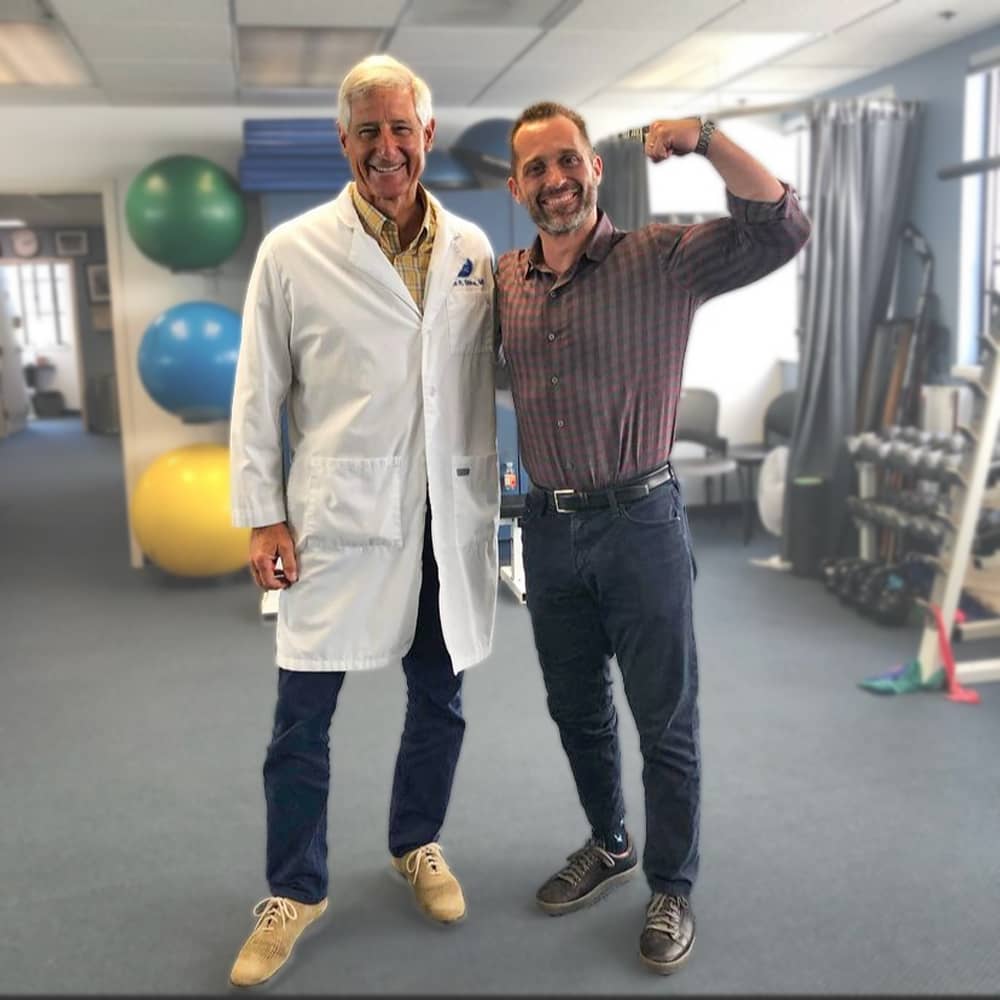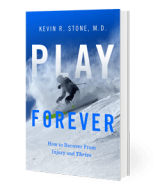How Can Patients Best Influence Their Outcome?
Patients are often eager to control as much of their care experience as possible in order to improve their outcome. Sometimes, though, where they chose to be become involved is unhelpful—and can occasionally become an obstacle to getting great care. In this interview with Jeff Greenwald, Kevin R. Stone MD discusses where energy is best spent for patients going into surgery.
So, let’s begin with this question: Which aspects of care should patients just leave in the hands of their provider?
Dr. Stone: The other way to ask this is: How does a patient get the best outcome based on the things they can control. So, number one, if a patient is smiling on the way into their exam room or their way into the operating room, they will dramatically influence the care that they get. They make the nurse feel better. They make the anesthesiologist feel better. They make the surgeon work better. Everybody does a better job when the patient is smiling, happy and optimistic.
That's a remarkable statement.
Dr. Stone: Yes. So the first, most important thing influencing your care team is your own optimism and positive approach towards the problem that you're going to ask everyone to help you solve. That's step number one. Step number two is controlling all the aspects of your own life that you can control outside of the care team’s reach. As I like to say: Treat yourself the way a professional athlete would. When professional athletes get injured, their line-up includes a nutrition team, a massage therapist, fitness trainers, even a psychology coach. Everything is covered. They use their injury as an opportunity to come back to the next season fitter, faster, and stronger than they have been in years. In short, as a better athlete. Now, most people don't have all those coaches, or enough time, but they do have control over what aspects of their life they can bring to the table: their diet, their fitness regimen, how much time each day they can spend training, and—of course—their attitude.
Let's return to what people can do to prepare themselves pre-surgery.
Dr. Stone: When we say pre-surgery, let’s assume you've already been injured. You have a diagnosis, and you're on your way to getting your problem fixed.
First, adopt the attitude—before surgery—that you are going to use this injury as an excuse to come back better. Remind yourself: I'm not simply a patient. I'm an athlete in training. You’ll also want to pre-train around your injury. So if you've injured, let’s say, your knee, line up your trainer and therapist to be working on your back and your core and your cardio program, to keep the rest of you fit.
Next, get your life in order. Line up your work, your schedule, your fitness schedule, your support team, and all the things it takes to get to and from your appointments. Setting up your support services is critical. Who is going to drive you to work? Or back to your home environment, for ice and elevation and all the little things that help make your recovery go faster? Put your team together.
And number three, again, is your mindset going in, on the day of the surgery. How you approach the clinical team going in, your mental state and optimism, really can influence your outcome.
How about post-surgery? How can you, as a patient best optimize your recovery—both physically and mentally—after you’re stitched back up and sent home?
Dr. Stone: The first thing to know is that, for most injuries, swelling slows down healing. The more you focus your rehabilitation and therapy time on reducing swelling, the better you're going to do. We like you to come into our clinic for an hour of physical therapy and an hour of fitness training every day, and then to get your knee or body part up in the air, above your heart, to reduce swelling. Because the more post-operatively you can elevate, get massage therapy, and use an ice compression machine—all the little tools reduce swelling— the faster your recovery.
The second thing is about pain. We think pain inhibits healing, pain inhibits muscle formation, and pain produces depression. Pain's a bad thing. So ask your surgeon about all the little tricks they can do during surgery to reduce your post-op pain. And there are many tricks from preemptive anesthesia where blocks are placed before anything painful is done, to long-acting local anesthetics, to short-acting anesthesia medicines which help avoid the use of narcotics.
And then, of course, make sure you have the right medications—focusing on the ones that don't cause you to be woozy or drowsy or constipated (as opioids do). The drugs we use the most are Toradol (Ketorolac) and Tylenol. Those are the best first-line drugs. If you need sleeping medications, use what works for you as sleeping well helps healing. Many patients have started using various cannabinoids (usually gummies or mints at night which lowers their use of any narcotic). Stay away from narcotics, if you can, but also try to stay out of pain—so that you can exercise and mobilize your joints more.
What you’re saying, in terms of the final outcome, is that the attitude you take into the operating room is as important as the attitude you take out of the operating room.
Dr. Stone: Correct.
And it's funny, because you also tell patients that—when they're seeking a great surgeon—they should be more influenced by the brains, creativity, and skill and not be too swayed by the personality, warmth, or affability of the surgeon. But for the surgery to succeed, the patients themselves need to have those qualities more than the surgeon does.
Dr. Stone: Very well said
Are there any tools or apps or products or supplements that can help patients improve the quality of their outcome?
Dr. Stone: It depends on the supplements. We don't have a lot of great data on many of them, other than research showing that chondroitin and glucosamine seem to reduce stiffness. A healthy diet is clearly very important, with water being the most prominent and important hydration technique. All the tissues work better when they're well hydrated. In the case of machines, and products, there are lots. The ice/cold compression machines—the most common one is from Game Ready; the soft tissue massage machines from Theragun; the blood clot reducing machines we use to help pump the calf muscles; knee stretching devices; all are tools designed to help you decrease inflammation, decrease pain, and regain your full range of motion. And those are the three areas you want to focus upon, in terms of having a smooth and successful recovery from any kind of orthopaedic surgery.


